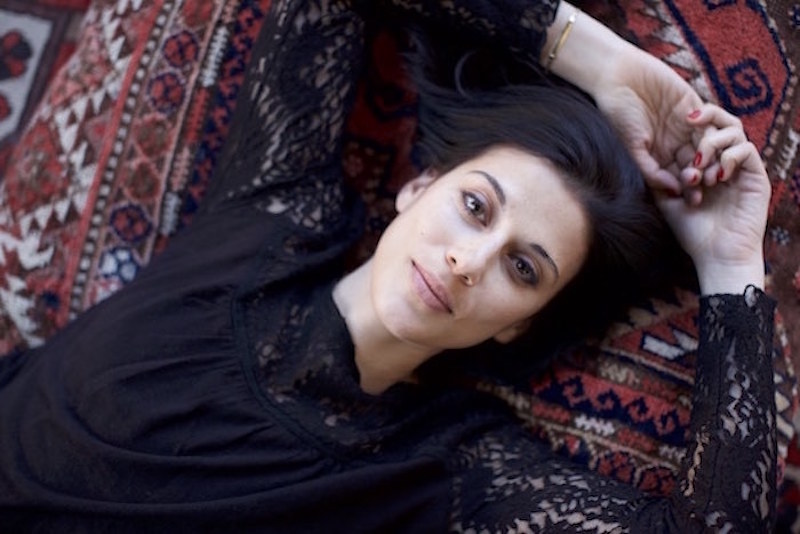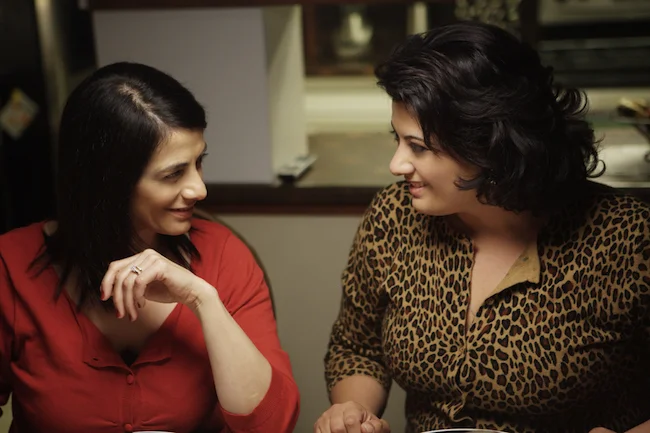In 2009, Cherien Dabis’ first feature ‘Amreeka’ created the perfect buzz at the Sundance film festival where it premiered. The Hollywood Reporter touted it as a film that re-energized the immigrant stories genre with “refreshing wit, honest emotions, incisive observations and a perfect cast she [Dabis] literally flew around the world to find.”
Fast forward to 2017 when Dabis has become a name to be reckoned with in Arab cinema, of course but also, and perhaps more importantly, in Hollywood. The Palestinian-American Dabis is currently a producer-slash-director-slash-writer on ‘Empire’, has written and produced various episodes of ‘Quantico’, ditto for ‘The L Word’ and this is all after writing, directing, producing and starring in her second feature ‘May in the Summer’which also world premiered at Sundance in 2013.
Multi-hyphenation is as much a part of Dabis’ life, as is being pluri-talented. Do I root for Dabis because she’s at once a fabulous woman, a constant source of inspiration and a beautiful example of kindness, strength and class? You betcha. And also because with her sheer presence as an Arab-American woman in Hollywood she creates an irrefutable bridge of understanding that no amount of negativity, misinformation by the media or human ignorance can tear down.
When I first met Dabis in Venice, where she introduced ‘May in the Summer’ during the festival, she uttered some of the most haunting words I’ve heard from another human being, ever. “I think to be Middle Eastern is to suffer from daily heartbreak.” She was right of course, and her thoughts perhaps prophesied the latest bout of violence and sorrow coming out of the Region. Yet this most recent interview here ends with what is by far the best reflection on being a woman in the Arab world. And that’s Cherien Dabis for you!
When I asked Dabis to be a part of this series, she not only encouraged me, spurred me on with her prompt and positive reply but she also provided, by email, perfectly insightful, thoughtful answers. Answers that allow the reader into the core of her power and creativity and in the process, show us the woman behind the filmmaker.
What are you currently working on?
Cherien Dabis: On the film front, I’ve partnered with Academy Award-winning producer Michael Sugar and Rosalie Swedlin at Anonymous Content to write and direct the film adaptation of Dr. Mona Hanna-Attisha’s upcoming public interest book. Dr. Mona is the Iraqi American pediatrician at the center of the toxic lead disaster/water crisis in Flint, Michigan. Along with a cast of incredibly courageous individuals, she unraveled the mystery of the poisoning of a city, faced down her state government and became the face of a national public health disaster. As the daughter of a Palestinian immigrant pediatrician, I’ve always had a keen interest in public health and medicine. So I relate to Dr. Mona’s unique point-of-view as an immigrant, woman and a doctor and to her sense of civic responsibility. I’m blown away by her courage, compassion and sheer determination. Her story embodies the reason I became a filmmaker. I couldn’t be more excited to tell her story.
And since I usually work on multiple projects at once – I’m also currently writing what I like to think of as my Palestinian epic, the story I’ve been dying to tell about how we arrived at where we are today. It follows three generations of Palestinian men during three defining periods in Palestinian history, all narrated by the family matriarch, our storyteller. It’s about the traumas we’ve faced and the hope that we’ve lost. But more importantly it explores the question: how can we begin to heal?
On the television side, I’ve spent the last two years writing, producing and directing on the network shows ’Quantico’ and ‘Empire’. That has kept me quite busy! But in addition to that, I’m also developing my own series for cable. It’s inspired by the true story of an unbelievably fearless woman single-handedly fighting human trafficking in North Dakota. It’s an issue that we don’t even think exists in the United States, but it unfortunately does. And given the current political climate, the story of a woman taking the law into her hands and saving women who would otherwise fall through law enforcement cracks is so important and so timely.
Hiam Abbass and Nisreen Faour in a still from ‘Amreeka’
What would you have done if you hadn’t become a filmmaker?
Dabis: I probably would’ve gone into international diplomacy in some capacity. As an Arab American who grew up in both the East and West, I always felt like a bridge trying to bring two cultures closer together. Perhaps it was the only way to make sense of who I was. My film work sometimes provides me with opportunities for cultural diplomacy, so from that point-of-view, I dabble in that type of work. But if I had really gone for it, I’d probably speak eight languages by now (I love languages and have always wanted to speak a minimum of 5) and live all over the world. That sounds pretty great to me.
I also see myself doing humanitarian work, particularly with refugees. I feel more and more drawn to that in fact and hope that one day my film work will lead me in that direction. That’s really where I’d like to end up.
There is a world in which I also could’ve become a doctor. But I would’ve studied both eastern and western medicine in order to provide a more holistic approach. And I would’ve joined Doctors Without Border or some such organization providing medical care in conflict regions. I have such tremendous admiration for doctors who do that. I could also see myself getting involved in medicine from a public health perspective. Health, wellness, psychology, nutrition, food as medicine, these subjects interest me greatly.
What do you love most about writing, and about directing. And the downside, if any, to both?
Dabis: What I love most about writing is the opportunity it provides for the exploration of one’s own mind and its potential to create. To me, there is nothing more satisfying than taking what’s in your head (ideas, thoughts, emotions) and channeling it into story. In order to do so, you have to make sense of it. You have to process it. You have to find the meaning in it. It’s cathartic, therapeutic and absolutely transformative. The only downside to it is that it can be a lonely process if you’re consistently writing alone.
What I love most about directing is the incredibly deep focus required, especially when working with actors, which is my favorite part of directing. You have to be so present, in the moment, and so engaged. That level of concentration, when you can shut out the rest of the world and focus solely on what’s in front of you, creating life before your very eyes, that’s where I thrive. Not to mention, to direct is to get to be the very first audience of a film. It’s incredibly exciting.
What represents elegance to you?
Dabis: Grace. Simplicity. Compassion. Strength.
What is the first film you ever remember watching?
Dabis: My parents had a huge VHS collection of Egyptian films. So I’m sure it was one of those and most likely starred Faten Hamama — who they named my older sister after! But the first film I remember watching in the theater was ‘E.T.’. It was in small town Ohio where my parents settled down after immigrating to the U.S., and I was around 6 years old. I remember relating to that misfit little alien. He wanted to go home just like my mom.
When you hear “women in Arab cinema” what does that mean to you?
Dabis: The first thing that comes to mind is that we’re a force to be reckoned with! I think we make up at least half of the Arab film industry — if not more. It’s interesting, I’m often asked what it’s like to be a woman working in the Arab film world. In other words, have I encountered sexism and whatnot... And I always say that I’ve never gotten anything but love, support and respect. It’s totally true.
The Arab world is very proud of its female filmmakers. And for that, I’m very grateful.

